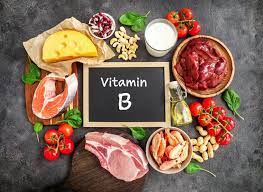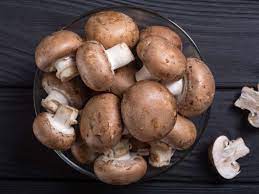Whether you’ve recently become a vegan or are looking to optimize your nutrition as an omnivore, B vitamins are essential to overall health. As a group of eight vitamins, they’re responsible for everything from muscle to cognitive function, says nutritionist Elana Natker
According to Natker, while B vitamins are highest in animal foods, most B vitamins can also be found in plant foods—albeit in smaller amounts.” I recommend vegans get plenty of grains from foods like bread, breakfast cereals and pasta,” she said. Vegetables like spinach and ingredients like nutritional yeast (a vegan favorite) also contain many B vitamins.

Fortunately, there are many foods suitable for vegans and omnivores that help maintain healthy levels of eight different B vitamins.
Vitamin B1, also known as thiamine, plays a vital role in various cellular functions and is only stored in the liver in small amounts, requiring adequate daily intake. Deficiencies are uncommon because B1 is found in common foods such as fish, meat, and whole grains. But chronically low intake, poor absorption, increased loss (through urine or feces), or increased demand (such as during pregnancy) can lead to insufficient thiamine levels.
Vitamin B2, or riboflavin, is an important antioxidant that fights free radicals that can lead to inflammation. It’s also important for converting vitamin B6 into a more bioavailable (aka usable) form, protecting eye health, and relieving the severity of migraines. While standard balanced diets (yes, even vegan diets) tend to be rich in riboflavin, vegetarian athletes and pregnant or breastfeeding women may be at a higher risk of deficiency.

Vitamin B3, also known as niacin, is essential for maintaining heart and circulatory health, brain health, skin health, and cognitive health. All three forms of vitamin B3 (niacin, nicotinamide, and nicotinamide riboside) are precursors to NAD+, which aid in cellular function and promote healthy aging.
Vitamin B5, known as pantothenic acid, is used to make coenzyme A, which helps enzymes metabolize fatty acids in the blood. Therefore, a diet rich in vitamin B5 is associated with a lower incidence of hyperlipidemia characterized by elevated levels of “bad” cholesterol or triglycerides. While more research is needed to determine its efficacy as an antioxidant, it did demonstrate a positive effect on low-grade inflammation associated with heart disease.
Vitamin B6 is essential for maintaining a strong immune system by supporting the production of lymphocytes (a type of white blood cell). It is essential in more than 100 enzymatic reactions, especially those involved in protein metabolism. While most people get enough pantothenic acid from their diet, people with impaired kidney function, alcohol dependence, or autoimmune diseases are at risk for pantothenic acid deficiency.
Also known as the “beauty vitamin,” B7 or biotin helps promote healthy skin, hair, and nails. A biotin deficiency can actually cause thinning hair, brittle nails, and a red, scaly rash on the skin. Increasing biotin-rich foods or taking supplements can help with these side effects.

However, in our modern world, biotin deficiency is relatively rare, and fighting for it when you’re getting enough doesn’t offer any added benefit. In fact, excess biotin may actually interfere with blood test lab results.
Biotin also aids in the metabolism of fats, carbohydrates, and proteins, and contributes to gene regulation and cell signaling.
Natker says vitamin B9, known as folic acid in its natural form or in supplement form, “helps prevent neural tube defects in early pregnancy and is important for healthy red blood cells.”
Vitamin B12, or cobalamin, is essential for the formation and division of red blood cells, as well as for DNA and nerve health. It is derived only from animal protein, which is why many vegans take vitamin B12 supplements to help meet their daily needs. But ingredients like nutritional yeast and tempeh can be fortified with vitamin B12.
Other factors that contribute to vitamin B12 deficiency include older age, autoimmune disease, intestinal disease, and antacid use.” I like to check my clients’ B12 status every year because supplementation is easy and prevents cognitive impairment,” she said.
While it may seem daunting to consider getting adequate levels of all eight vitamins in the vitamin B complex, eating a well-balanced diet consisting of produce, whole grains, fortified foods, and select protein sources can help you keep looking your best from your head to your heart, and everything in between.
Post time: May-13-2022




